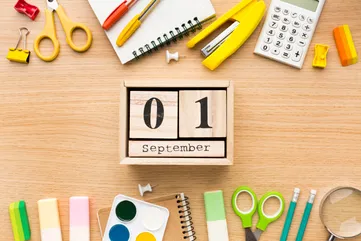Coaching
Coaching is a collaborative partnership that helps teens identify goals, overcome obstacles, and develop skills through guided self-discovery, accountability, and systematic skill-building.
Why coaching suits adolescent development
Coaching aligns with adolescent developmental needs for autonomy while providing necessary structure. Unlike directive approaches that trigger teen resistance, coaching's collaborative nature respects growing independence while offering support.
The International Coach Federation defines coaching as "partnering with clients in a thought-provoking and creative process that inspires them to maximize their personal and professional potential." For teens, this means developing metacognition, self-efficacy, and internal motivation rather than external compliance. Research shows coached students demonstrate improved academic performance, higher self-esteem, and better preparation for adult responsibilities.
Grant (2003) found that coaching interventions with students led to increased goal attainment and improved metacognition. Green et al. (2007) demonstrated that coaching programs for adolescents significantly improved self-efficacy and reduced stress levels.
You're not alone
If you feel like your teen's personal assistant, constantly managing their schedule and reminding them about responsibilities, coaching might be the solution. Many parents become trapped in cycles of nagging and rescuing, damaging relationships while preventing teen independence. Professional coaches provide neutral accountability and skill-building without the emotional charge of parent-teen dynamics. Families using coaching report improved relationships as parents step back from managing role into supportive one.
What it looks like day to day
Student
Your teen has daily 15-minute check-ins with their coach, reviewing yesterday's goals, setting today's priorities, and problem-solving obstacles.
Parent
You notice your teen taking ownership of their schedule, asking for help proactively rather than waiting for crisis, and developing their own organizational systems.
Tiny steps to try
Implement coaching principles at home while considering professional support.
- 1
Ask, don't tell
Instead of giving solutions, ask "What would help?" or "What have you tried?" Build problem-solving rather than dependence.
- 2
Goal collaboration
Work together setting weekly goals. Let your teen lead while you guide toward realistic targets.
- 3
Accountability without judgment
Check progress matter-of-factly. "How did homework go?" rather than "Did you do your homework?"
- 4
Skill focus
Address underlying skills rather than just outcomes. [Organization systems](/the-parent-bit/finding-order-in-the-chaos-setting-up-calendars-for-kids) matter more than clean rooms.
- 5
Celebrate process
Acknowledge effort and strategy use, not just results. Building habits requires recognizing small wins.
Why coaching works for teens
Coaching fills the gap between what teens need to know and what they're explicitly taught, providing personalized support for life skills development.
What coaching addresses:
• Executive functioning and organization
• Goal setting and achievement
• Study skills and academic strategies
• Time and stress management
• Decision-making and problem-solving
• Self-advocacy and communication
Unlike tutoring (subject-specific) or therapy (addressing dysfunction), coaching builds life skills for navigating challenges independently.
References
Grant, A. M. (2003). The impact of life coaching on goal attainment, metacognition and mental health. Social Behavior and Personality, 31(3), 253-263.
Green, S., Grant, A., & Rynsaardt, J. (2007). Evidence-based life coaching for senior high school students: Building hardiness and hope. International Coaching Psychology Review, 2(1), 24-32.
Ready to help your teen thrive?
Get personalized 1-on-1 coaching to build better habits and boost grades. Join 10,000+ families who trust Coachbit.
Frequently Asked Questions
How is coaching different from therapy?
Therapy addresses mental health concerns, past trauma, and psychological dysfunction. Coaching focuses on skill-building, goal achievement, and forward movement from a functional baseline. Coaches work with present challenges and future goals rather than processing past experiences. Many teens benefit from both: therapy for emotional healing and coaching for practical skill development. Neither replaces the other.
When should we consider professional coaching?
Consider coaching when family dynamics make skill-building difficult, when specific expertise is needed (like ADHD coaching), or when neutral accountability would help. Signs include constant parent-teen conflict over responsibilities, parents doing too much for teens, or teens struggling despite family support. Professional coaching particularly helps during transitions like starting high school or preparing for college.
Related Terms
Academic Coaching
Academic coaching is personalized support that helps students develop learning strategies, time management skills, and study habits for academic success.
Executive Function Coaching
Executive function coaching specifically targets the brain-based skills needed for planning, organization, time management, and self-regulation, providing structured support while these abilities develop.
Goal Setting
Goal setting is the process of identifying specific, achievable objectives and creating actionable plans to reach them within defined timeframes.
Related Articles

Finding Order in the Chaos – Setting up Calendars for Kids
Creating a calendar and daily schedule for kids can be beneficial to manage school, homework, extracurriculars and hobbies. Color-coding and time-blocking are helpful tools for kids with ADHD.
Read article
3 Ways an Executive Functioning Coach Can Help Your Child
Discover why executive functioning skills are crucial for your child's success. Learn how an executive functioning coach can make a difference
Read article
4 Steps to Teenage Habit Building
Habits are the behaviors we do each day. By following the 4 laws of habit formation, we can tap into the teenage brain’s learning power and change behavior.
Read article
